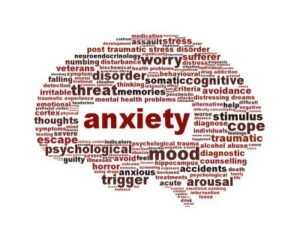Vicarious trauma: When we feel the pain of someone else’s trauma
Being on the front line in times of crisis can be difficult and draining. For those in helping fields, these kinds of crises can be an everyday experience. When does it become too much to carry? How do we know when the stress goes from what’s expected from the work, we do to something that is significantly impacting our lives? If this feels familiar, you may be experiencing vicarious trauma or compassion fatigue.
During this time when the world is experiencing a health crisis, is it possible to feel someone else’s trauma from the news stories we see?
What is vicarious trauma?
Vicarious trauma can be described as the direct or indirect exposure to someone else’s trauma that impacts one’s own physical and/or psychological well-being. This is also known as compassion fatigue or secondary trauma. Those who are in a helping or rescuing role are at risk for experiencing vicarious trauma. You may be thinking this sounds like burnout, but burnout can be described as workplace stress that impacts one’s physical or psychological well-being. The important difference here is that, unlike burnout, compassion fatigue involves being exposed to someone else’s trauma. In being exposed to someone else’s trauma, your life can be negatively impacted by what you’ve seen or heard in those helping or rescuing experiences.
Signs of compassion fatigue
We can start to understand whether our experience is workplace burnout or vicarious trauma by being aware of how we think, feel, and behave in our everyday life. There are multiple signs of dealing with compassion fatigue. These include, but are not limited to:
- Physical exhaustion
- Mental and emotional exhaustion
- Insomnia
- Nightmares
- Use of or dependence on alcohol, drugs, or addictive behaviors
- Lack of ability to empathize with others
- Workaholism
- Hyper-vigilance (constantly being worried about the safety of yourself and others)
- Cynicism (a belief that everyone is acting out of self-interest and outlook of the world is bleak)
- Anxiety (often feeling nervous, scared, or constantly thinking of things that could go wrong)
- Depression (feeling numb, unmotivated, and exhausted)
- Anger (getting easily angry to a degree that is inappropriate to the situation)
What if this is you?
Experiencing vicarious trauma can take a toll on your overall well-being, but there are things you can do to prevent and cope with it.
Contact Fuller Life Family Therapy
Here at Fuller Life Family Therapy, we have a group of trained professionals who can help individuals who are dealing with vicarious trauma. For more information, or to schedule an appointment, please email us at info@fullerlifefamilytherapy.org or call our main number (855) 245-5433.
Resources
Good Therapy – Vicarious trauma
Psychology Today – Vicarious trauma and the professional interpreter
Psychology Today – When vicarious trauma victims suffer from PTSD
Psychology Today – Trauma workers at risk for compassion fatigue

Contributed by Lindsay Perry, LPC Intern
Clinical supervision by Amy Fuller, PhD, LMFT-S, LPC-S









